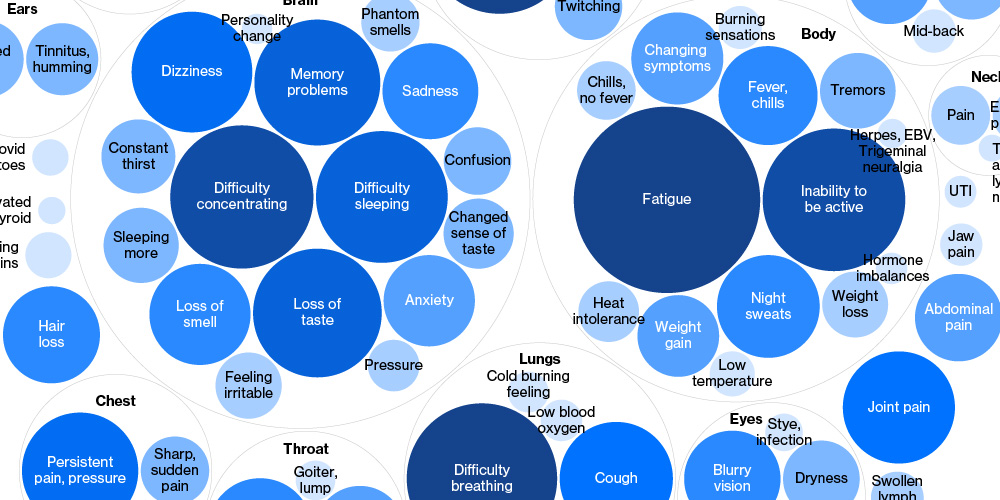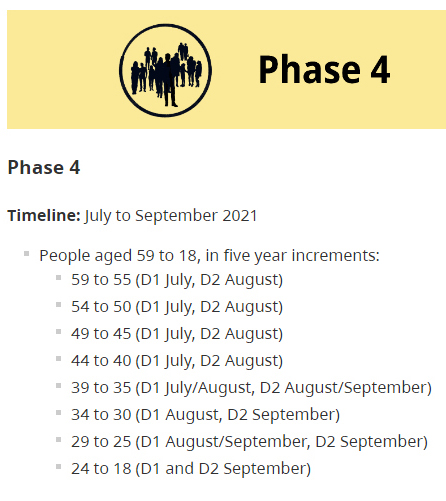
Monday January 25, 2021 | NATIONAL
by Mary P Brooke, B.Sc., editor | Island Social Trends
A social safety net for COVID-19 long haulers is becoming an evident need as we embark on the second year of impacts due to the viral infection in Canadians.
Some if not many people across Canada who have tested positive for COVID-19 and then recovered are noticing continued health impacts. Some health impacts continue for months, and could have a range of permanency going forward.
Long-hauler health profile:
According to The Mayo Clinic, COVID-19 symptoms can sometimes persist for months. The virus can damage the lungs, heart and brain, which increases the risk of long-term health problems.
In addition to fatigue, shortness of breath, cough, joint pain and chest pain, the longer-term impacts may include muscle pain or headache, fast or pounding heartbeat, loss of smell or taste, problems with memory and concentration, sleep problems, skin rash or hair loss. COVID-19 can make blood cells more likely to clump up and form clots, leading to heart attacks and strokes. Heart damage stems from very small clots that block capillaries in the heart muscle. Weakened blood vessels can lead to long-lasting liver and kidney problems. Mood impacts (including PTSD, depression and anxiety) can result from the COVID hospitalization experience itself.
COVID long-haul experience is here to stay:
“The virus is still out there. People have been sick and until we have herd immunity, will continue to get sick,” says Manitoba MP Daniel Blaikie (Elmwood-Transcona) as NDP critic for Employment, Workforce Development and Disability Inclusion.

This means people will continue to be less functional in various ways, due to impacts on energy levels, lung function and even brain function. And that will also have impacts on the health care system (in terms of demand for service) and on economics (in terms of increased health care system costs and increased disability supports).
The impacts on people’s personal and family lives is incalculable. A parallel to dealing with the long-range health and economic impacts upon war veterans due to lingering impacts (injury both physical and mental) is not a stretch.
Pitching for federal attention to long-haulers:
In this light, Blaikie wrote to the Minister of Employment, Workforce Development and Disability Inclusion, Carla Qualtrough (Delta) regarding the needs of COVID-19 longhaulers.

“We know that thousands more Canadians are going to be impacted with recurring symptoms of varying severity,” wrote Blaikie. He outlined how many longhaulers are either unable to work, or to work full-time. Returning to previous jobs is curtailed or made impossible due to recurring health impacts.
“Existing mechanisms are not strong enough to catch people who have become sick due to COVID-19,” the NDP Critic told the Minister in a letter dated December 10, 2020. Blaikie’s points were detailed and informative:
- Canadians who qualified for EI Sickness Benefits are about to see those benefits run out in January.
- Many self-employed or gig economy workers do not qualify for EI Sickness Benefits in the first place.
- The threshold for long standing benefits like CPP Disability is too high to catch longhaulers.
- For the few Canadians that still have workplace benefits, the newness of the illness is proving (to be) a significant barrier.
- Provincial disability assistance programs require people to spend down their savings and sell off their assets, putting them into a poverty trap they may never recover from.
Proposed in the letter is “a simple change” to existing programs that will “prevent health-care costs, strains on disability supports and ensure longhaulers can access the care they need”, Blaikie wrote.
Specifically, the NDP asked for the work requirement for EI Regular Benefits and the Canada Recovery Benefits for patients with a medical certificate through the duration of the pandemic. A wide range of health practitioners should be able to sign the medical certificate, says Blaikie. Such certificates would include a description of symptoms, not a confirmed diagnosis as positive test results for COVID-19 do not always happen after the active infection has passed.

Blaikie argues that the government has a moral obligation to support long-haulers as vulnerable Canadians.
And today during a media session from Ottawa, NDP Leader Jagmeet Singh articulated that frontline workers in essential services — many of whom are in the younger-age work force — are “at higher risk” for COVID-19 infection.
BC approach:
In BC there has not been a lot of discussion yet by public health or politicians regarding the impacts on long-haulers and the concomitant impacts on the health-care system including ongoing health-care budget impacts.
Other than the ones who work in frontline health care, COVID immunization for young working adults has not been prioritized (even if they are working in essential service industries).
In BC, young adults ages 19 to 24 years must wait until September 2021, (according to the BC Immunization Plan that was rolled out January 22, 2021) despite the long-term impacts on the health of the working population going forward as a result of COVID-19.





